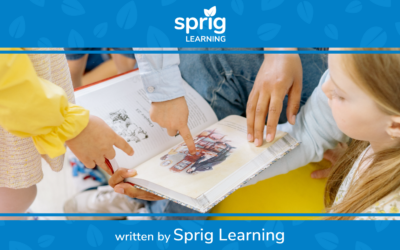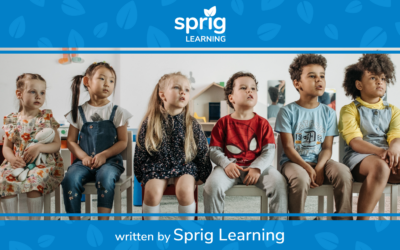Root to Fruit — The Sprig Learning Newsletter for Holistic and Equitable Early Learning.
Get access to insightful blog roundups, timely industry news and company exclusives.
Written twice a month for you!
Join our community of passionate early learning supporters.
"*" indicates required fields

Sprig Learning to Exhibit at OCTE’s 25th Anniversary Spring Technological Education Conference
Bringing together over 500 educators, guidance counselors, board leads, administrators, community organizations, and industry partners, OCTE’s landmark conference is a hub for innovation, collaboration, and professional learning in the field of technological education.
Sprig Learning will be featuring Sprig Reading, its powerful, digital progress monitoring tool that helps educators track and support foundational reading skills for all students. Designed to align with evidence-based early literacy practices, Sprig Reading harnesses the power of purposeful technology to meet the real needs of today’s classrooms.
The Role of the Reading Tutor in Improving Early Literacy
The Role of the Reading Tutor in Improving Early Literacy Early literacy is essential to a child's academic success, and reading tutors play a pivotal role in fostering these foundational reading skills. By providing targeted support, reading tutors help young...
Elsapet the Puppet Makes Her Grand Debut, Spreading Language, Love & Autism Acceptance on World Autism Day
A new voice is joining the conversation on language, culture, and inclusion! Elsapet, a lovable puppet with a heart for connection, makes her official debut on April 2, World Autism Day.
Sprig Learning 2024 Recap. Spreading Wings With Purpose-built Solutions.
As the year draws to a close, Sprig Learning reflects on 2024, a year filled with inspiring events, and impactful innovations.
Whether it be our work in collaboration with Indigenous communities, new innovations in early childhood assessments, or exploring game-based learning and evidence-based progress monitoring, it was a great year to spread our wings!
Here are a few standout moments from what was a truly transformative year for Sprig.
Optimizing Potential of Activity-Based Learning in Early Literacy
Activity-based Learning plays a crucial role in early literacy.
To optimize its potential, it’s essential to understand what it entails, its core element of active engagement, how it integrates with other learning approaches, and how it extends beyond instruction into assessments.
This article covers it all, finishing with looking at ways in which activity-based learning impacts early literacy assessments.
What to Do With Early Literacy Assessments? Easy Framework To Make The Right Decisions
Even with high-quality instruction, the absence of robust assessment planning can deepen inequities in access to effective reading instruction for students who need them most.
School-wide reading assessments are now more prevalent and a required component of multi-tiered systems of supports (MTSS). It’s high time that early literacy teams receive clear guidance about their usage.
This article guides early literacy teams in selecting the right assessments to meet learning goals and maximizing the impact of their assessments.
Best Early Literacy Activities for Teaching Foundational Reading Skills
Educators today are constantly seeking evidence-based activities that enhance student learning. But what distinguishes these activities, and how can they be effectively implemented in the classroom?
This article addresses these inquiries by elucidating the core practices that form the foundation of evidence-based literacy activities. It then explores their practical application in educational settings.
Delving into three fundamental reading skill sets, it introduces and delineates evidence-based early literacy activities tailored to each skill.
How to Improve Formative Assessments for Early Literacy?
In “Traditional Early Years Assessments vs Holistic Assessments”, the value of formative assessments is highlighted. For example, how educators who consistently use formative assessment strategies double the speed of learning for their students.
Exploring the science and art of formative assessments is a vast and intriguing subject. It’s highly recommended to check out the referenced articles to gain a deeper understanding of formative assessments.
To answer the question, how formative assessments can be improved in the classroom, two approaches may be taken. 1) Understanding its Core Essence. 2) Understanding its Core Types.
11 Common Situations in Early Literacy Leadership and How to Respond
Navigating early literacy leadership challenges in pre-kindergarten, kindergarten, and early elementary grades can be complex. As students embark on their educational journey, success in these formative years hinges on various factors.
While situational challenges may arise, the reassurance comes from insightful case studies that shed light on similar scenarios and effective responses.
This article covers 11 common situations, drawing from valuable knowledge shared in previous Sprig blogs.
Explore a wealth of information covering a spectrum of topics, all neatly compiled in this article.
3 Crucial Factors in Bridging The Gap Between Research and Early Literacy Success
Through exploration of translational science, researchers have examined the many layers that exist between research and classroom teachers.
The existence of all these layers can impede the successful communication and adoption of research in classrooms.
But worry not, the gap between research and practice, and consequently, the achievement of early literacy success through practical application, can be bridged.
By addressing the three crucial factors outlined in this article, any school district, governing body, or elementary literacy team can enact policies or implement measures to successfully translate the latest research into actionable practices.
4 More Types of Parental Involvement in Early Childhood Education
Sprig Learning has previously covered this all-important topic of parental involvement. In this special occasion, as a follow-up to the previous blog, four additional ways will be explored in which parents can actively engage in their child’s early literacy journey.
Parenting is a balancing act, and in the realm of early childhood education, every bit of support matters.
So then, let’s see four more ways in which parents can lend their support in early childhood education, especially to the cause of early literacy success.
5 More Powerful Qualities of Diagnostic Assessments That Drive Evidence-based Literacy Instruction
In the first part of a two-part series on diagnostic assessments, Sprig Learning uncovered the essential qualities of diagnostic assessments, shedding light on their pivotal role in shaping evidence-based literacy instruction.
Re-entering this exploration, Sprig delves deeper into the nuanced aspects that distinguish diagnostic assessments as indispensable tools in the early literacy landscape.
Navigating Back-to-School Challenges: Improving Reading Strategies for School Leaders
This article is the second installment in a two-part series aimed at assisting education leaders in refining and enhancing existing reading strategies and programs for the upcoming school year. If you missed part 1, Starting Strong: How Educational Leaders Can Transform Reading in Their School, be sure to give it a read, as it offers valuable insights into how to lay the foundation for future reading achievement by addressing all aspects within the system.
This article delves deeper into what to watch for and how to continually enhance the implementation and sustenance of a reading strategy once it has been set into motion.
5 More Emerging Themes for Success in Early Literacy
Building on this week’s article, 5 Emerging Themes in Improving Early Literacy, Sprig Learning is thrilled to present 5 more of such themes for success in early literacy.
Hopefully, this series has been useful in getting ideas and inspiration for taking on initiatives to improve the quality of early literacy programs in your classrooms and schools.
There are more stories corroborating these themes, or exploring new themes that may be just as useful in rethinking existing literacy initiatives at your school.
Without further ado, here are 5 more emerging themes in improving early literacy. Let’s nurture a generation of confident and enthusiastic readers together!
The Power of Early Childhood Education: 4 Critical Reasons to Prioritize ECE
Sprig Learning creates holistic and inclusive early learning programs for pre-K to Grade 3 students.
Early childhood education is defined by the United Nations Educational, Scientific and Cultural Organization and the National Association for the Education of Young Children as birth to 8 years of age. This corresponds to pre-K to Grade 3 in the education system.
It’s the early years from Pre-K to Grade 3 that is especially critical.
From Emergent Literacy To Reading Mastery
Educators play a vital role in guiding students through this transformative process.
By understanding the milestones and implementing effective strategies, more students can become confident and proficient readers.
In this blog, we will delve into the path of emergent literacy to reading mastery, exploring key stages and evidence-based approaches that will take an early learner beginning to show signs of literacy to a proficient reader.
The Science of Teaching Reading: Effective Reading Assessment, Explicit Reading Instruction and Targeted Reading Intervention
Reading is an essential skill for success for all learners.
Not all students develop reading skills at the same pace, however. Therefore, teachers need to be equipped with the right tools and resources that support all students to receive the right instruction, at the right time, and at the right level.
The science of teaching reading involves effective reading assessments, explicit reading instruction, and targeted reading interventions. In this blog post, we will explore each of these elements and how they can enhance student reading skills.
The Interactive Map of Holistic Learning in Canada [Updated for 2023-2024 Education Budgets]
A holistic approach to education is often the answer to many of the challenges faced by school districts and policy makers today. This interactive map of Canada looks at the state of holistic education across the country.
How to Design Classroom Resources— for Teachers in Early Learning.
Creating effective classroom resources is essential for teachers in early learning. In this article, we will delve into the topic of designing classroom resources that cater to the needs of young students. Originally titled by Chris Hough, Sprig’s remarkable graphic...
Data in the Classroom—Efficient Practices for Growing Classrooms
Education administrators, teachers, and parents have the power to revolutionize the classroom. Don’t miss this opportunity to unlock the full potential of your students. Read on to learn more about effective data-driven education practices.
A new report by Sprig Learning reveals the power of data in the classroom.
Learn how to harness the wealth of student information available to create a dynamic school culture that prioritizes personalization, supports individual learning styles, and drives positive outcomes.
Importance of Cybersecurity in Schools. What you Need to Know.
This article is dedicated to teacher’s use of technology.
The majority of early learners may not use computers, tablets and phones in schools, but their teachers use these devices to manage planning, instructional and assessment data.
Thus it’s very important to understand the importance of cybersecurity in schools.
2022 Review. Sprig’s Mission to Increase Equity in Early Learning. Innovations. Conversations. New Beginnings.
Sprig is better equipped than ever to address the early learning issues facing schools and districts, particularly those involving literacy disparities in both language and math.
Between every collaborating teacher, team member, and partner organizations, a lot has happened this year. Attempting to summarize it all in one article would not do it justice.
Instead, to give you a sense of what has been going on, we pick a few key moments from the year.
5 Hidden Gems for Teaching Reading in Schools
In Sprig’s research thus far, there have been advice and case studies that fell outside the purview of previously written articles. However, these bits of wisdom have shown to be just as successful in closing the early literacy gap.
When these five gems of recommendations listed below were followed, schools and early learning centers were successfully able to surpass student language and literacy learning indicators targets.
The Ideal Online Professional Development for the Reading Teacher
Sprig covered the role of PD in strategic reading instruction in a previous article. It’s essential reading for anyone looking to better understand the linkage between PD and improving early literacy instruction. The article goes into the components of effective PD for reading instruction, its examples and its expectations.
This article will talk about the role of online PD, how it connects with the real purpose of PD, and how such a format can be useful for evidence-based reading instruction.
It makes a case for online professional development being suited to raise student performance because of the advantages it provides to the reading teacher.
Need for Professional Development in Strategic Reading Instruction
When done right, PD can be a tool for strategic reading instruction.
It can consolidate and further advance the learning gained from teacher preparatory programs on evidence-based instruction.
Furthermore, it can introduce these concepts to teachers who have not heard of them before.
Most importantly, it can provide practical and actionable guidance to teachers by which they can improve reading proficiency for their students.
This article explores the goals of PD for strategic reading instruction and the ideal components of PD. It subsequently discusses the types of PD that are available, and the expectations of a high-quality PD program.
Improving Reading With Dyslexia in Early Literacy
Dyslexia, and other related co-occurring learning disorders like ADHD, can put affected students at a disadvantage. In a diverse classroom, the needs of such students can be overlooked, unless we pledge to take the necessary steps to provide the support they need.
In this article, Sprig covers the basics of dyslexia, and offers tips to improve reading with dyslexia in the early years of education.
Although dyslexia is non-curable, when properly managed, it’s possible for many dyslexic students to be proficient in reading!
40 Science of Reading Insights You Need to Know for Strategic Reading Instruction
In this article, we look at multiple aspects of SoR to derive lessons that can be applied in the classroom.
To do this, we rely on an assortment of 40 factual statements on SoR. They are grouped where appropriate, to offer valuable insights to educators, staff and leaders for improving reading instruction at schools.
Sprig Learning Partners With Joyful Literacy To Develop a New Evidence-Based Early Literacy Teacher App
Sprig Learning was purpose-built to help provide every student with a fair shot at success. To date, we have worked with schools across North America to improve the assessment process in the early years, support teachers and provide all young learners with the chance to succeed in both school and in life. We have helped thousands of early learners acquire the fundamentals of early literacy and numeracy.
Sprig Learning’s early literacy tools are built around the Science of Reading. To take the next big leap in early literacy innovation, Sprig is excited to partner with Dr. Janet Mort and her Joyful Literacy team to bring you Sprig Reading: Powered by Joyful Literacy! Joyful Literacy is a proven, evidence-based literacy framework that has consistently improved classrooms to 90% grade-level literacy achievement. Wherever it is implemented, the results soon follow!
The Undeniable Case for Early Literacy Intervention
Often the word “literacy intervention” conjures up thoughts that relate to cost-inefficiencies and doubts over its overall efficiency.
But with hundreds of reading intervention programs being used by thousands of schools, we are past the point of debating the usability of interventions.
Rather, the focus should be on how to best implement literacy interventions in schools.
Early Childhood Teachers— Creating the Perfect Team
Despite all the challenges commonly faced by teachers, they are committed to the teaching profession to help students.
It takes an enormous amount of effort and dedication to teach preschoolers, kindergarteners and students in the early elementary grades. That’s why Sprig Learning supports the teaching cause by designing holistic early learning programs for Pre-K to Grade 3.
For this year’s National Teacher Day, let’s take time to understand each teaching role to truly appreciate them!
Building Early Literacy Skills in Schools. Thoughtful Considerations.
Literacy is a science, and there is a plethora of things to consider when explaining variances in literacy outcomes.
For schools, timeliness is especially important in making a difference in building early literacy skills. A stitch in time saves nine.
In this article, Sprig Learning zeroes in on early literacy skills, and their impact on student outcomes.
Designing The Best Assessments in Early Childhood Education
Assessments are critical to early childhood education and development. We look at early learning assessment best practices to design the most effective assessments.
In school districts across Canada and the US, there is a standardized assessment delivered at the end of grade 3 or grade 4 which often represents the first standardized assessment in the early years. It also often marks the end of the primary school years. But in fact, a lot of the time, early childhood education begins with an assessment!
Holistic Formative Assessments. The New Wave.
Formative assessments are used by educators throughout North America to teach students. How can holistic formative assessments help? In education, formative assessments are extremely popular. Schools that use formative assessment show gains in academic achievement for students. For previously underachieving students, the gains are more pronounced due to the impact of formative assessments.
4 Types of Parental Involvement in Early Childhood Education
Parental involvement is essential for a high-quality early childhood education. For best results, make sure that these four things are taken into consideration.
The Unrivaled Miniguide to Introducing Differentiated Instruction in Early Learning
Use this miniguide to build your differentiated instruction strategy for early learners. Acquire a complete perspective of differentiated instruction implementation.
Dealing with Implicit Bias in Early Learning Assessments
Is it possible to mitigate implicit bias in early learning assessments? Further your understanding of this topic and get some recommendations.
Helping Every Early Learner Make Progress in Early Literacy- Individualized Education Programs.
The importance of evidence-based core instruction and research-driven assessments cannot be overstated, especially given that they have not always been the topmost priorities in education. The same holds true for monitoring student progress and providing early...
Sprig Learning Launches Sprig Reading 3.0 to Address Low Early Learner Literacy Rates
Sprig Reading addresses the growing literacy gap in early learners by providing teachers and schools with an advanced, customizable and one-of-a-kind monitoring of students’ reading abilities.
How Can You Supercharge Your Pre-K to Grade 3 Assessments?
Improving existing early literacy assessments in Pre-K to Grade 3 classrooms can involve two approaches:
Replacing an entire assessment toolkit with a completely new tool.
Adding something new to enhance existing assessment tools.
This article focuses on the latter, that is, specifically enhancing an existing early literacy assessment toolkit.
In this context, enhancing consists of both enriching and supplementing.
Both approaches are discussed in this article, along with their impact on early literacy assessments and the popular tools commonly used by schools.
Progress Monitoring Assessment and Benchmark Screeners in Early Literacy. Doing One or Both?
Assessment is a critical component of early literacy, providing teachers with valuable insights into student progress and guiding instruction.
Two commonly used assessment methods to guide literacy instruction in the classroom are progress monitoring assessments and benchmark screeners.
This blog will explore progress monitoring assessments and benchmark screeners, discuss the strengths and challenges of each, and finally describe a strategy where both can be enhanced.
Sprig Learning Apps are a Part of Apple’s Education Partner Program
Apple’s dedication to education shines through its motto, “Inspiring Every Kind of Mind,” prominently featured on its dedicated education page.
This ethos, shared jointly by Sprig Learning, emphasizes the belief that each individual possesses unique learning styles and creative expressions.
By leveraging Apple technology and resources, educators and students of all backgrounds are empowered to explore, create, and chart their paths to success.
Supporting Struggling Readers in Kindergarten: Transforming Existing Practices Into Evidence-based Practices
From diverse developmental timelines to limited exposure to print and vocabulary gaps, each challenge demands attention. This is especially true at a time when there are curriculum/standard mandates for kindergarten being introduced at various jurisdictions.
Educators in kindergarten need help to transform their teaching practices.
In this blog, we delve into the specific challenges kindergarteners may encounter, shedding light on how evidence-based practices can transform traditional teaching methods to provide enhanced literacy support for struggling readers.
2023 Recap–Resonant Engagements and New Horizons
As we bid farewell to the year, this article reflects on some of the many wonderful highlights of the year.
Note that the office closes today, and will remain closed until January 2nd.
We extend warm holiday wishes to all!
Foundational Reading Skills– Mastering Weekly Planning for Teachers
Weekly plans can keep students engaged in learning essential concepts, while allowing flexibility to address individual learning needs and take appropriate next steps.
If you’re eager to explore a comprehensive list of research-backed and proven foundational reading skills, check out this detailed article on the Sprig blog. It covers each foundational skill, providing insights into their importance and citing supporting evidence.
This article covers how classroom teachers can master the assessment, instruction and re-assessment of foundational reading skills on a weekly basis.
Why Small Group Instruction is Needed For Assessments in Early Literacy
It’s one thing to assess how a classroom is faring on the foundational reading skills– if they have been assessed, if they need explicit instruction, or if they need more practice.
It’s another thing to then have the means to provide differentiated instruction to all children in the classroom.
This article will explore why small group instruction, along with early literacy assessments, are essential in early literacy.
It will describe the advantages of this personalized approach to instruction and how it complements the formative assessment process, creating a more effective learning experience for budding readers.
5 Powerful Qualities of Diagnostic Assessments That Drive Evidence-based Literacy Instruction
Diagnostic assessments are typically administered at the outset of a school year, term, semester, or teaching unit. Serving as essential tools for teachers, these assessments play a crucial role in planning instruction and establishing precise learning goals.
They offer valuable insights, empowering both teachers and students to assess existing knowledge and skills related to overall and specific expectations.
Diagnostic assessments embody five powerful qualities that make them powerful drivers of evidence-based early literacy instruction, meeting the pressing needs of teachers in today’s educational landscape.
Starting Strong: How Educational Leaders Can Transform Reading in their School
Starting strong is essential to early reading success. Not only for young learners, but for teachers and administrators as well, where they review what has worked and what can be improved, to create an action plan that will serve them well for the upcoming school year.
This article will help school leaders to optimize early reading resources, engage educators, and implement impactful changes to elevate literacy outcomes.
5 Emerging Themes in Improving Early Literacy
In December of last year, Sprig Learning published 46 Stories of Improving Early Literacy Achievement in Schools. If you haven’t had the chance to read it yet, it is highly recommended. It features 46 amazing stories that offer valuable insights and inspiration for improving literacy in schools and preschools.
Out of the 46 stories, 7 were showcased in the early learning centers/preschool section, while the remaining 39 were highlighted in the school/school districts/school boards section.
Additional stories from past editions of the newsletter have been organized into 5 more themes, each offering valuable insights for early literacy achievement.
The 5 themes are as follows…
Mastering Time: Essential Elements of an Early Childhood Teacher Schedule
How can educators be better supported in their daily schedules? The essential components of teacher schedules are explored in this article, to suggest areas where help can be accepted. By following a set structure, an educator ensures that they are fitting the best quality education possible in the time they have at the school with their students.
The Heart, the Art, and the Science of Reading
By understanding the true potential of reading success, and exploring the components of Heart, Art and Science, we can establish effective approaches that support reading development.
So, how do we embed the Heart, the Art, and the Science in ways that will help us reach that essential goal of a 90% success rate for our young children?
Let’s examine each component:
15 Highly Effective Classroom-based Advice From 15 Structured Literacy Educators (Teachers, Specialists, & Scientists)
Through structured literacy instruction, students who excel in certain areas can naturally advance, while those who struggle in certain areas receive additional instruction and practice, so they do not fall behind and are not left struggling by the time they reach Grade 3.
Teaching reading is both a science and an art, and it is important to learn from experienced early literacy researchers, teachers, specialists, coaches, and interventionists to determine the best practices for effective reading instruction.
This article compiles 15 valuable pieces of advice on how to teach early learners to read from highly experienced literacy specialists, coaches, teachers, and experts.
42 Key Figures Today in Early Childhood Education in North America
Early childhood education (ECE) has come a long way. Many important thinkers have left their imprint on how to educate children.
This article is being updated to double the number of key early childhood education influencers who are leaving their mark, from 21 key figures to 42 key figures.
These 42 people have made a difference in ECE and continue to do so.
6 Amazing Parent Engagement Ideas in Early Education
When parents are involved in their child’s education, they can help create a supportive learning environment that promotes academic success and social-emotional development.
However, finding ways to engage parents in their child’s education can be challenging, especially in a world where parents are busier than ever.
Sprig Learning presents these 6 effective parent engagement ideas that can help schools and teachers build strong partnerships with parents, support their child’s learning, and ultimately improve outcomes in early education.
Traditional Early Years Assessments VS Holistic Assessments
Student assessment is one of the most critical aspects of early learning. So critical in fact, that Sprig has dedicated an article to just assessments in early childhood education. Educators who consistently use formative assessment strategies are shown to double the...
How to Create High-Quality Head Start Preschools for Early Learning
There are many initiatives to expand accessibility to public Head Start preschools, but such accessibility has to be matched with quality, or there is a risk of perpetuating the cycle of inequity.
In this blog, Sprig argues the case for high-quality preschools, addresses the issue of accessibility, and then gives the indications and characteristics that would be required to create a high-quality public or private early learning program
15 Incredible Stories of Revitalizing Indigenous Education
The educational equity section features stories on the gaps between different groups of students due to their own unique circumstances. It highlights stories that speak of this gap, and the efforts that are conceived and actions that are taken to reduce this gap.
In particular, Sprig Learning centers its work around the persistent gaps for Indigenous learners. It is not only additional resources that are often needed to provide high-quality early learning, but support for the autonomy for Indigenous communities to preserve local customs, languages and cultures.
This article presents 15 stories of revitalizing Indigenous education first featured on Root to Fruit, since the beginning of the last school year.
How to Help Students with Dyslexia
Regardless of the type and degree of training teachers have received on dyslexia, or their current level of knowledge, it’s never too late to create a more supportive learning experience for dyslexic students.
If you want to understand the basics of dyslexia and see proven characteristics of effective reading programs, do read Sprig’s Improving Reading with Dyslexia.
This article is a follow up to that content, focusing exclusively on how teachers can support students with dyslexia.
Evidence-based Early Literacy Trends and Lessons (With Examples)
The change process is usually preceded and followed by unfreezing and refreezing respectively. If this 2019 report from Education Week is any indication of the viewpoints held by the majority of educators, we are still at the unfreezing stage.
But the blow dealt by the pandemic to the continuity of in-school learning has definitely hastened the need to take action and speed up the change process.
The learning loss that has occurred has grabbed the attention of many school districts and teachers across North America. Some have started to implement practices that are more conducive to evidence-based early literacy.
Nine such evidence-based instruction trends are reviewed in this article, with examples. The lesson learned from each trend is discussed as well.
10 Actions Schools Can Take Today to Increase Early Literacy Equity
Creating the right plan and formulating the right strategy are important, but sometimes it helps to review ready-made actionable recommendations to help those students who are in dire need.
What are some things schools can do today to boost reading proficiency scores and accelerate both learning gains and learning recovery? These 10 actions can be implemented by any school to increase literacy equity.
How Principals Can Improve Foundational Reading Skills at Their Schools
Improving foundational reading skills requires the collaborative effort of many. Sprig has written about these players in previous blogs. See for example, the primary teacher, the literacy specialist and the literacy coach. This article deals with the all important role of the school principal.
When enough principals adopt a validated, peer-reviewed approach to literacy, they can also influence the superintendents in their districts to try out evidence-based methods, which have been proven to reduce risk of reading failure.
Early Literacy: Academic Return on Investment (ROI) For Schools
Education leaders do not seek a monetary return on their investments, but they do seek greater student learning and cost-efficiency. This is called the academic return on investment for schools. This article is about increasing the academic return on investment through early literacy initiatives.
How Literacy Coaches Help Reading Achievement 101
This week, we turn our attention to the literacy coach. Like the reading or literacy specialist, it’s another in-school role that plays an invaluable part in teaching school children how to read.
The literacy coach, or reading coach, is someone trained in early literacy and who is aware of all recent developments in reading research. They use these skills to show teachers how to more effectively help students learn to read.
The role of a literacy coach is multivarious. It involves planning for coaching, reviewing teaching and assessment practices, and organizing resources for early literacy instruction.
Design a Summer Reading Program for Early Literacy
Indeed, schools should be well equipped to manage returning students that had varied summer experiences and were exposed to diverse learning opportunities. Some students may require more help than others in the form of one-on-one or group support.
But how can we mitigate the summer slide?
Or looking at it from a more positive angle, what if more learning opportunities were available during the summer so all students could continue to maintain and build their early literacy skills?
Using Play-based Technology to Teach Early Math Skills
Encouraging and motivating a student during their early math experiences allows them to develop a keen interest in math. Such enjoyment and persistence in learning math pays off. Students explore creative ways to advance their learning instead of being discouraged and frustrated.
Play-based learning drives engagement in the early years.
Technology facilitates play.
In this article, we explore technology’s potential in teaching early math skills.
11 Reasons Why Holistic Learning Strengthens Early Learning
One of the major reasons is holistic learning’s connection to differentiated instruction, which enables educators to personalize learning for every early child. Sprig’s holistic assessments help educators identify the unique strengths, needs and learning interests of every child.
Here are 11 more reasons why holistic learning suits early learning so well.
What Can Sprig Learning Do for You?
Introducing Sprig Learning, the holistic early learning platform that provides every young student a fair shot at success. What does this mean for everyone involved? Whether you are a parent, a teacher, principal, a school district or community leader, an education innovator, or perhaps all of the above, Sprig’s products are designed to help everyone involved in early childhood education.
Recommendations to Make Best Use of ESSER Funds
ESSER contains 3 stimulus packages thus far to help schools during the public emergency. With the right recommendations, it’s a tremendous opportunity to make long-term winning investments.
5 Solutions to 5 Key Challenges in Early Learning in North America
Every challenge has a solution. Apply these 5 solutions to address the 5 major early learning challenges faced by schools in North America.
What Is Holistic Learning’s Role in Assessing Early Literacy?
Is there such a thing as a holistic approach to assessment in education? We explore the depth to which holistic learning and assessments align with early literacy.
Improving Tiered Instruction in Early Literacy Through Multi Tiered System of Supports (MTSS) and Response to Intervention (RtI)
Tiered instruction frameworks have become a cornerstone in addressing diverse student needs in early literacy. Two widely used models, Multi-Tiered System of Supports (MTSS) and Response to Intervention (RtI), provide structured approaches to delivering interventions...
Curriculum Mapping for Reading Success in Pre-K to 3 Classrooms
Curriculum mapping is a process used to align educational content, instruction, and assessments with specific learning goals outlined in a specified curriculum.
In Pre-K to Grade 3 classrooms, where early literacy development is crucial, curriculum mapping becomes essential to ensure students acquire the foundational skills necessary for reading success.
This blog explores the importance of curriculum mapping in early reading success and what can be done to make this very important process easy and simple.
Content Coverage in Early Literacy Assessments. Wide enough? Deep enough?
Assessment coverage refers to the content evaluated in early literacy assessments. When selecting assessments, it’s crucial they align with your existing curriculum or standards.
Otherwise, there’s a risk of overlooking critical content areas, skills and competencies, leading to gaps in accountability and students potentially not meeting expectations.
If the curriculum or standards fall short of evidence-based early literacy practices, assessments can serve as an enhancing tool. They can prompt teachers to evaluate areas overlooked by the curriculum, offering a backup method of instruction. This ensures that essential skills, even if not covered in the original syllabus, are explicitly taught and assessed.
Holistic Assessment in Early Math
To design holistic assessment for early math, it’s crucial to grasp its essence and application in educational contexts. This article explores the concept of holistic assessment, its alignment with early math education, and the types of knowledge it evaluates.
Let’s start with an understanding about how holistic assessment works in early math.
Designing Toolkits for Revitalizing Indigenous Languages
In the quest to revitalize Indigenous languages, educational toolkits can play a pivotal role, not only in educating but also in preserving and promoting linguistic diversity.
Among these efforts, the “It’s Our Time: The AFN Educational Toolkit” stands out as a beacon of innovation and collaboration between the Assembly of First Nations (AFN) and Apple Canada.
This toolkit not only enriches educational content but also contributes to the broader goal of language revitalization among First Nations communities.
3 More Common Situations in Early Literacy Leadership and How to Respond
In a recent article, Sprig brings attention to crucial aspects of early literacy leadership with “11 Common Situations in Early Literacy and How to Respond”.
It’s a must-read, if you haven’t done so already. Going beyond case studies and researched best practices, Sprig revisits previous blogs, extracting valuable insights that can pose challenging situations to early literacy leaders and presents their corresponding responses.
As discussed, those initial 11 scenarios were not exhaustive by any means, and so Sprig expands the discourse in this article by introducing three additional common situations faced by early literacy leadership.
The 6 Golden Rules of Early Literacy Development
When it comes to something as pivotal to future success as early literacy, there are certain rules for educators, which the research tells us makes a big impact on learning.
They help give early literacy activities a shape and structure. They also help to combine the people, the process and technology into one seamlessly blended learning experience.
These six rules are integral in ensuring that early learners are set up for future success.
The Vital Role of Progress Monitoring Assessments in Early Literacy: A Comprehensive Guide
While various types of assessment serve distinct purposes, progress monitoring stands out as a dynamic and continuous process crucial for fostering optimal learning outcomes. Progress Monitoring also plays a pivotal role in enhancing all other types of assessments utilized in classrooms.
Progress monitoring assessments have been defined and contrasted with other types of assessments in previous Sprig Learning articles.
This article shines the spotlight on just progress monitoring: why it matters, the components that make it effective, and how to best implement it in a school setting
30 More Compelling Statistics in Early Learning (Early Literacy Edition)
This article is the second installment in our series on early literacy statistics. If you haven’t already explored the first edition, it is strongly recommended you do so, as it features 30 figures that shed light on the state of early learning in North America.
In the last edition, while many of the data points were pertaining to early literacy, some of them also covered early childhood education more broadly.
In this article, full concentration is exclusively placed on early literacy, delving deeper into the subject matter.
This article both reinforces key points from the previous edition and introduces new ones.
11 Key Questions for Selecting The Right Early Literacy Assessment(s) for Your School
A wide range of assessments are available to school leaders and educators, each serving specific purposes in identifying, monitoring and supporting a child’s literacy development.
In this article, Sprig Learning explores the various types of early literacy assessments and provides guidance on choosing the right assessment tool based on your specific needs.
The format consists of a series of 11 questions, as asking questions is integral at any phase of gathering information when deciding what is the right early literacy assessment for your school and students at this time.
Improve Student Achievement in Early Learning: Learn from 5 Remarkable Case Studies (Looking At 16 Schools)
At Sprig Learning, our focus lies in finding effective early learning solutions tailored for teachers instructing preK to Grade 3 children.
The mission involves facilitating successful learning experiences by presenting proven strategies that have worked for various schools, families and communities.
Sprig has previously presented stories and themes centered around enhancing early learning in school districts. This article covers successful case studies. It sheds light on 5 compelling case studies derived from 16 different schools across the US.
Each case study is paired with key takeaways, providing valuable insights for both educators and administrators.
Foundational Reading Skills— Their Meaning and Value in Evidence-based Literacy
A lot of the new wave of evidence-based or structured literacy movement is based on the principles of explicitly and systematically teaching all of the foundational skills.
Some common arguments against evidence-based or structured literacy arise from an insufficient understanding of what the foundational skills are, and what each skill entails.
In this blog post, Sprig Learning will explore all of the foundational reading skills that lay the groundwork for early literacy development.
There will be overlaps between certain foundational skills, but we purposefully wanted to list all skills identified in the research to demonstrate the richness of the instructional area that is covered by them.
Early Literacy Instruction: The Various Roles & Their Collaboration
From Pre-K to Grade 3, educators, specialists, and support staff collaborate to build strong foundations in early reading and writing.
Sprig has previously written on the need to create the right team of literacy professionals in schools, whose contributions are invaluable to the ultimate reading success of every child in the classroom.
This article in particular, focuses on the literacy aspect of early learning, and how all the different roles work together to increase the likelihood of children reading proficiently by Grade 3, regardless of their circumstances.
Sprig Learning is Selected for Measures for Early Success Initiative to Advance Equitable Early Childhood Assessments!
Sprig Learning is thrilled to announce its participation in the Measures for Early Success initiative led by MDRC with funding support from the Bill & Melinda Gates Foundation. This groundbreaking initiative envisions a future where early childhood assessments play a crucial role in promoting equitable learning outcomes for all young children.
Evidence-based Early Literacy in the United States [Covers All 50 States. Updated for 2023]
As the new school year begins, teachers, schools, school districts, organizations and governments are looking to improve early literacy scores post-pandemic. Some states across the US have strengthened previous legislative acts, other states have action plans in place to deal with literacy inequity, while others have enacted new laws to increase early reading achievement.
Hand Puppets for Kids: How They Enhance Early Literacy Development
Puppets have always featured in early literacy playshops, and for good reason, because of their ability to attract and retain attention at an early age.
In this post, Sprig explores the many benefits of using hand puppets with young students to promote early literacy, and offers some tips and tricks for incorporating them into teaching routines.
Need for Oral Language Development in Early Literacy
Studies show that children with unresolved specific language impairment in kindergarten are at a higher risk for reading difficulties, particularly in phonological processing and reading comprehension.
Given the crucial stature of phonological awareness and reading comprehension in evidence-based literacy, mastering oral language early on is key to reading successfully!
15 Essential Terms in Early Childhood Educational Equity
Researchers, professors, administrators, and practitioners in early childhood education use hundreds of terms that shape the discourse on equity in education, and ultimately lead to policies that drive change.
New words and concepts are constantly emerging, but it can be difficult to understand their meaning and relevance.
It’s important to understand the relevant terms and concepts used in the field of equity in education.
30 Amazing Early Learning Statistics From 0 to 100!
Early learning, also known as early childhood education, refers to the education a child receives from birth to age 8. Age 8 roughly corresponds to the grade 3 in most school systems.
These early learning statistics, starting from zero, all the way to a hundred, are divided into 10 sections. As statistics can be spun in many different ways, Sprig Learning provides commentary on each number.
46 Stories of Improving Early Literacy Achievement in Schools
To celebrate the upcoming 30th edition of Root to Fruit on Dec 7th (subscribe today if you want to receive the edition on that day), Sprig has accumulated 46 stories from prior editions to demonstrate what can be done to improve early literacy achievement.
For the benefit of those not subscribed yet, this article is a compilation of all stories on improving early literacy achievement in schools and preschools. It features reading instruction strategies, tactics and action plans that have been considered or instituted by schools and early learning centers.
It is important to note that all of these stories have come from schools or early learning centers, because stories from other stakeholders are also covered in Root to Fruit, which are pertinent to the improvement of early literacy.
Why Guided Play-based Learning in Early Literacy?
Play-based learning is one approach to differentiate learning— something Sprig has covered in a previous article showing how differentiated learning supports all other forms of learning.
Indeed some children may display a greater preference for play.
But by itself, play-based learning as a strategy for the whole classroom is a great way to improve early literacy scores.
Play-based learning supports early literacy development in multiple ways.
7 More Actions Schools Can Take Today to Increase Early Literacy Equity
The effort to reduce literacy inequity is a massive undertaking. It’s one that requires multiple actions. The original research conducted to write that piece included more than 10 ideas! Thus, as a part two of the same series, Sprig Learning presents to you, “7 More Actions Schools Can Take Today to Increase Literacy Equity” .
These 7 actions are just as applicable and research-based as those mentioned in the first part of this series. Sprig hopes some of these (if not all), are incorporated into future school improvement plans.
Evidence-Based and Cost-Effective Reading Intervention
When making decisions on education investments, both cost and efficiency must be taken into account. Both factor into the academic ROI, where the idea is to maximize student achievement for a certain sum spent.
There are many studies that explore the impact of educational tools, but the cost-effectiveness of these tools is often overlooked.
Costs include the price tag of such tools, but also the cost of the resources that are required for their successful implementation.
Early Literacy State of Affairs. 6 Major Ways to Make a Difference.
Given the current state of affairs for K-2 students, and for those from marginalized backgrounds, Sprig has identified six factors that make a positive difference in the learning outcomes of children.
These six factors, when understood properly, can be used to make a difference for students who are: struggling to read, just beginning to learn how to read, or going to start learning in the near future.
Early Literacy Instruction for Primary School Teachers/Elementary Teachers
Recently, there is more awareness about the immense value of early literacy. Studies continue to be published from various states showing that roughly a third of all K-2 students are missing early literacy benchmarks.
It’s a collective responsibility to ensure that the early literacy experience for children is optimized. Apart from parents, teachers spend the most time with kids in their daily lives during the school year. Their role in young students’ early literacy development is paramount to student success.
This article, Part 3 in our series, is dedicated to classroom teachers in early elementary grades who have a permanent seat at the early literacy dream team table. (Read Part 1 and Part 2.)
The ABCs of Supporting Reading Specialists
Approximately 4 million students are enrolled in Grade 3 in the US in 2022. We regularly read reports from different states about the percentage of Grade 3 and Grade 4 students scoring below the state assessment level for reading proficiency. It ranges from 20% to as much as 60%.
Even if the lower quartile is considered, that means 1 million students are struggling to read in the US. It’s quite a daunting task for reading specialists, with each reading specialist, on average ,responsible for supporting 52 students!
In this article, we look at the nature of the job that is done by reading/literacy specialists, evidence of their effectiveness, and put forward ways in which we can better support them.
The 20 Best Strategies for Teaching Early Math Skills
In a study on school readiness and later achievement, it’s said that early math skills have even greater predictive power than reading and attention skills, when it comes to determining success.
Given math is such an integral part of early childhood education, we wanted to do a comprehensive roundup of all strategies written on this topic.
We present them in this article.
Applying the Science of Reading in Early Literacy Strategies
There are hundreds of different factors that determine literacy success, and there are potentially more factors that remain unresearched.
That being said, the evidence for the Science of Reading deserves thorough consideration from educators who are looking for ways to build early literacy skills in and develop proficient readers in their classrooms.
In this article, we look at how the Science of Reading informs early literacy strategies.
High-Performing School Improvement Plan [With 3 Actual Cases from Early Learning]
With the right school improvement plan, becoming a high-performing school is a reality. It’s best to learn from existing case studies. We present three of them in this article.
Sprig Learning designs high-quality and culturally enabling early literacy and numeracy programs for pre-K to Grade 3.
High-quality early learning programs are used by school districts all over North America to produce meaningful results and deliver the best outcomes for young students.
Augmented Reality in Early Childhood Education. More Than a Trend.
Will augmented reality work in early childhood education? It will, if used in the right context. We explain its potential. Adding technology to any learning program will not immediately translate into improved student outcomes. However, technology, when used with physical educational materials, has the potential to add tremendous value to classrooms.
Sprig Learning Yearly Review [Includes message from CEO]
This is Sprig Learning’s 2021 end of year reflection. There is so much to be grateful for, as we work to ensure all early learners have the best shot at success in school.
5 Early Learning Challenges Faced by Schools and Programs Across North America
So many articles, journals, whitepapers, conferences, and experts agree on these 5 challenges in early education. Yet, they continue to exist. What are they? We discuss.
The Equity Issues in Early Childhood Education That Will Stop You in Your Tracks.
We have a long way to go to achieve equity in early childhood education. Here is some food for thought and potential solutions.
Post Categories

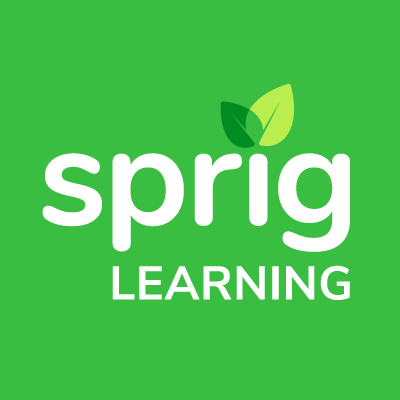
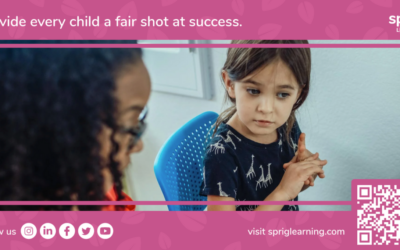
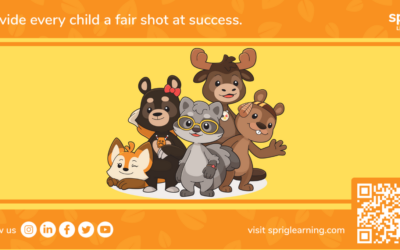
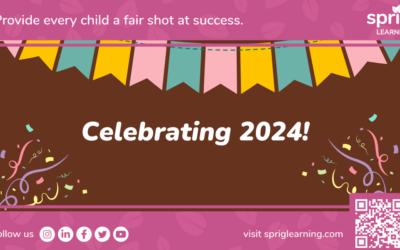
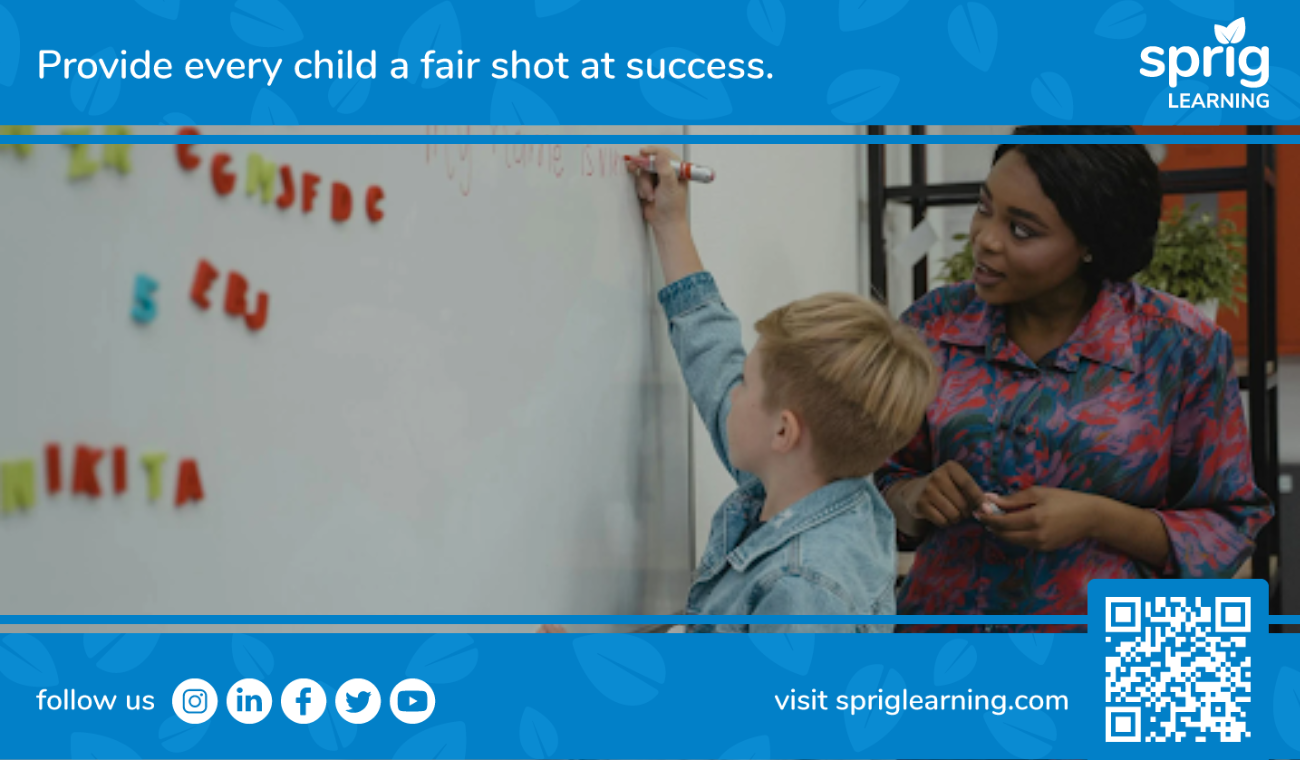
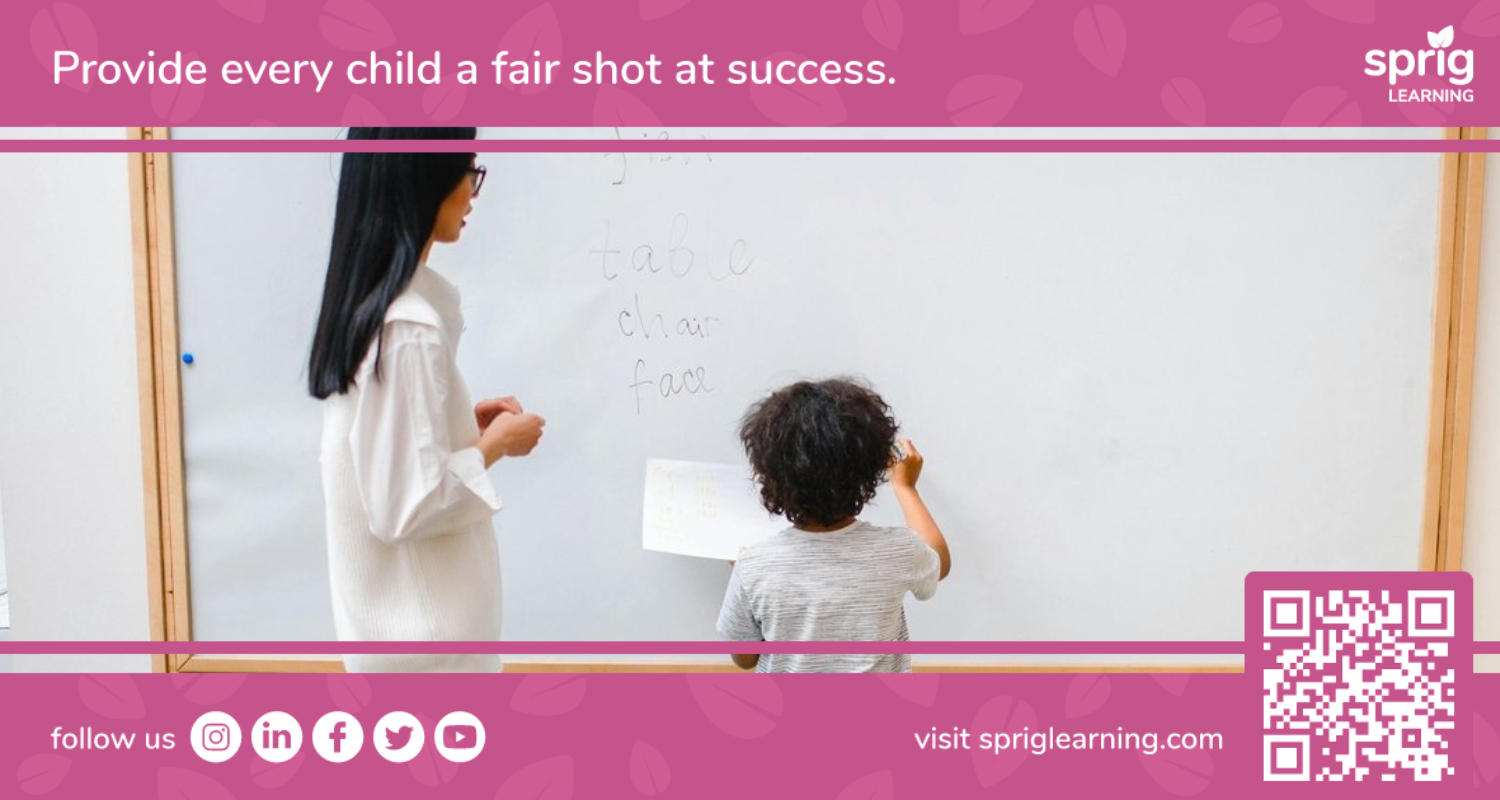
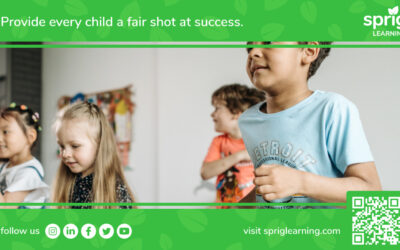
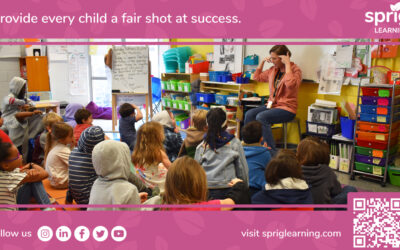
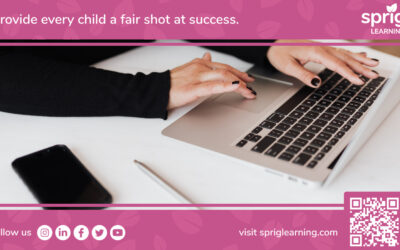
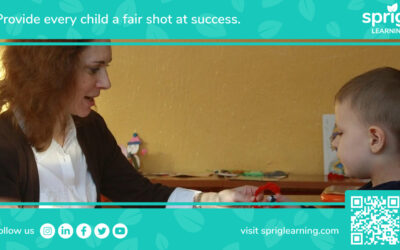
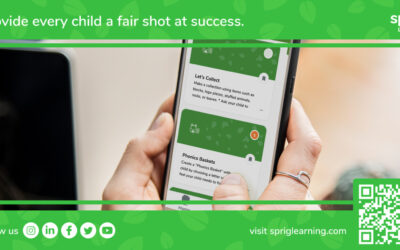
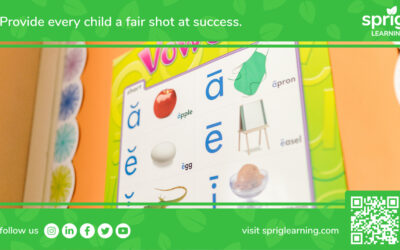
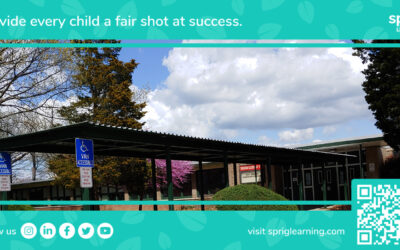
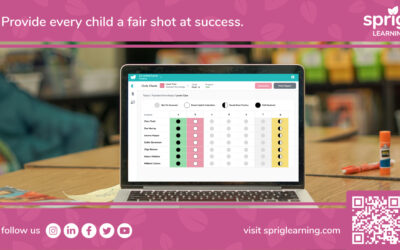
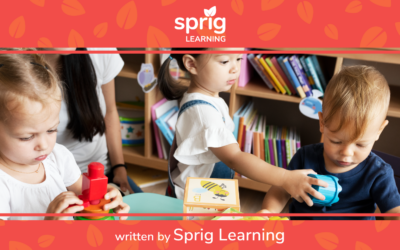
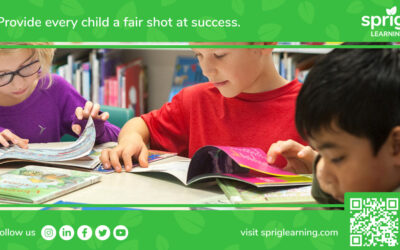
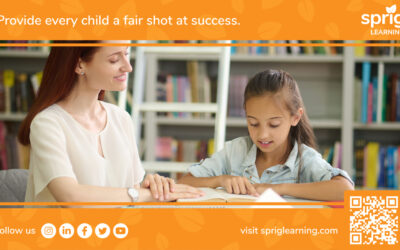
![The Interactive Map of Holistic Learning in Canada [Updated for 2023-2024 Education Budgets]](https://www.spriglearning.com/wp-content/uploads/2022/01/2001-InteractiveMapBlog-Website-V2-400x250.png)
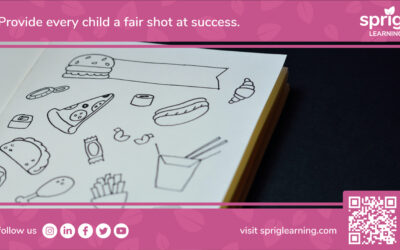
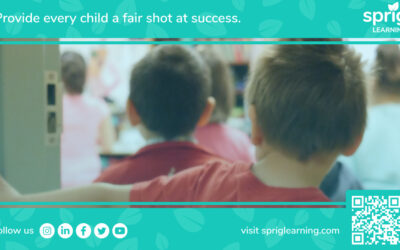
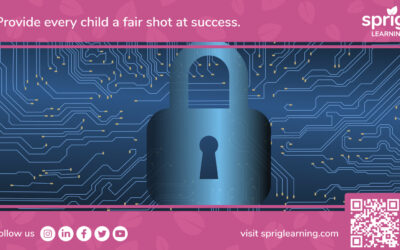
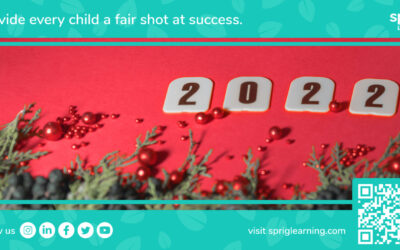
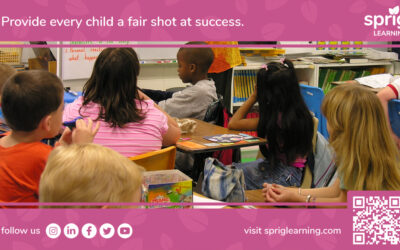
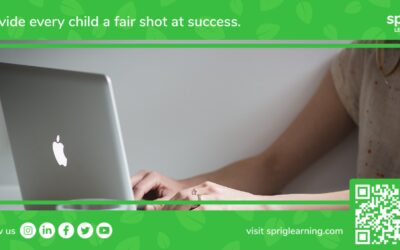
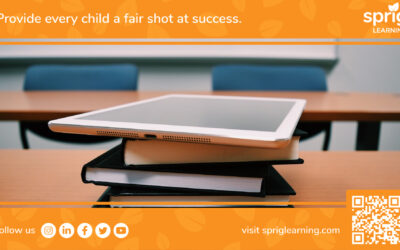
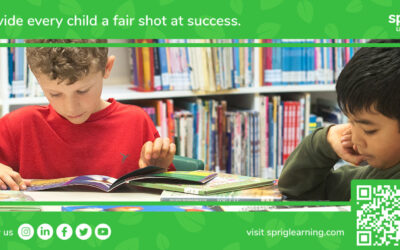
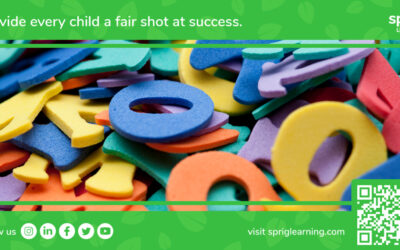
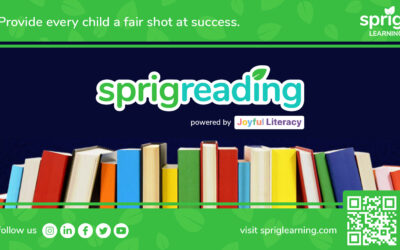
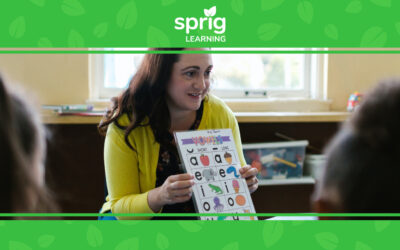
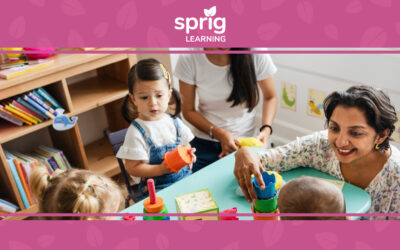
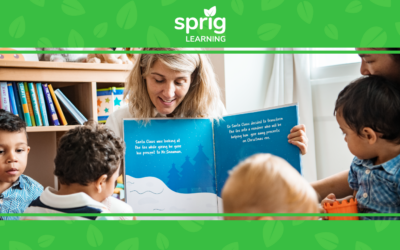
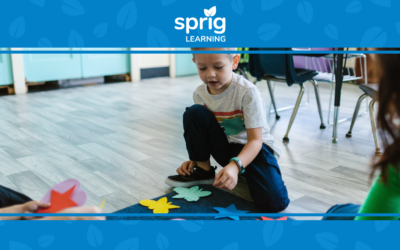
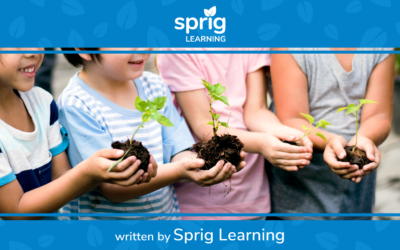
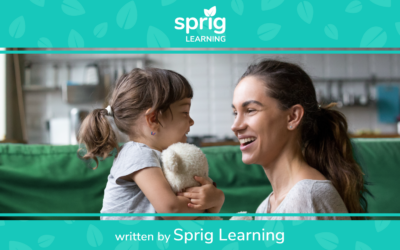
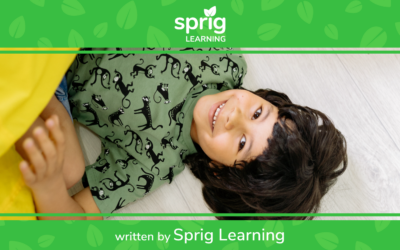
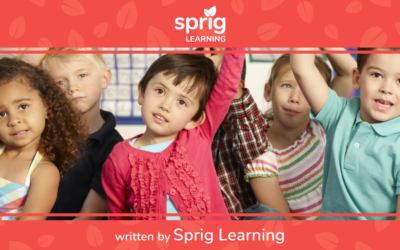




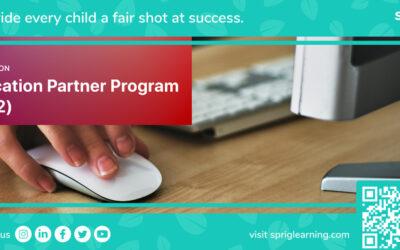
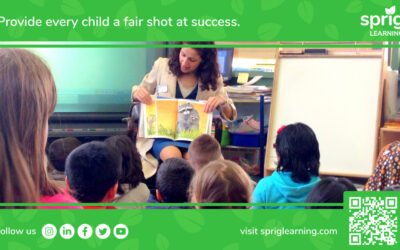
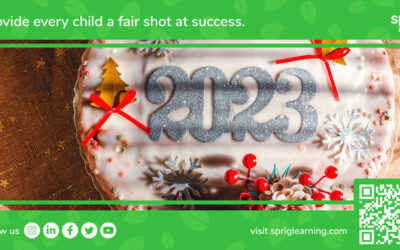
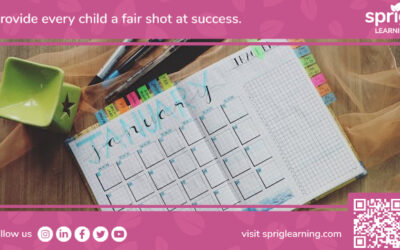
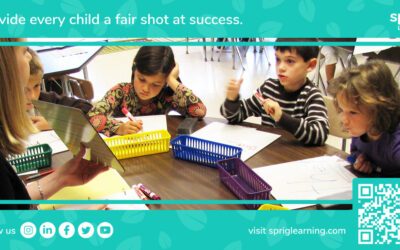
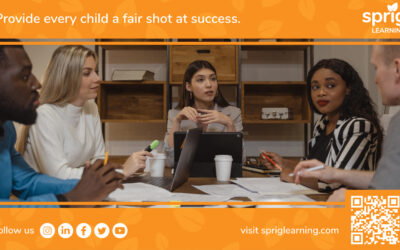
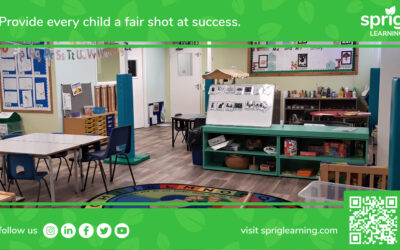
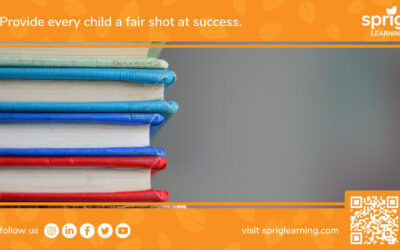
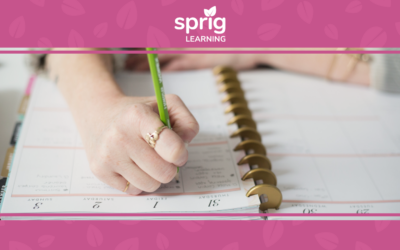
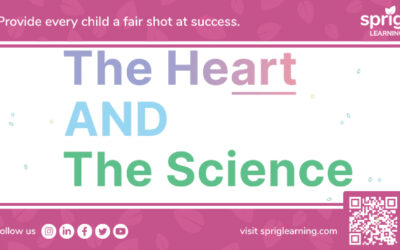
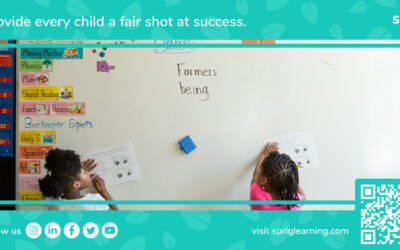
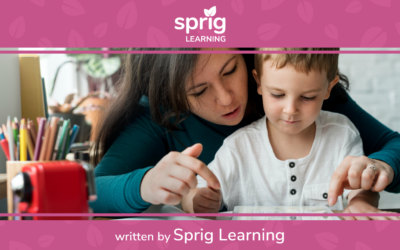
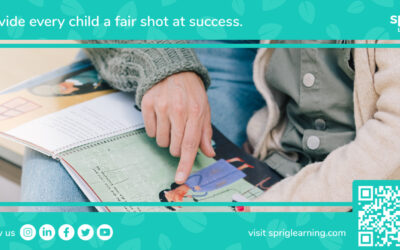
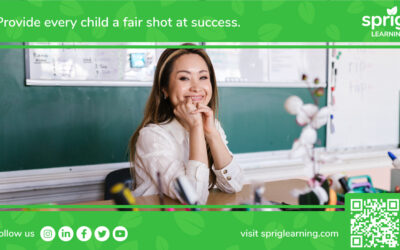
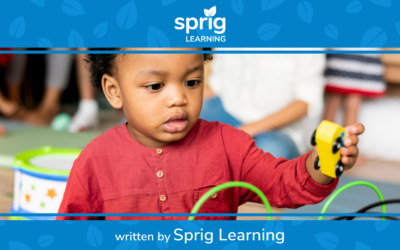
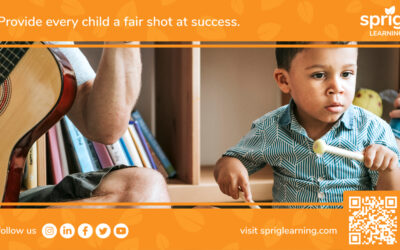
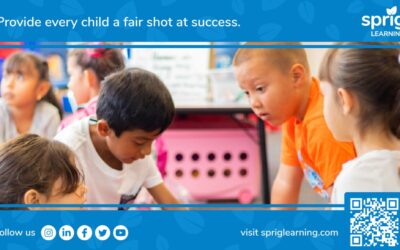
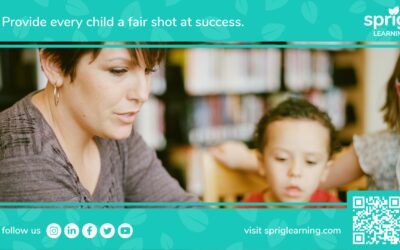

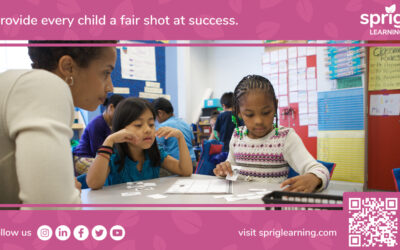
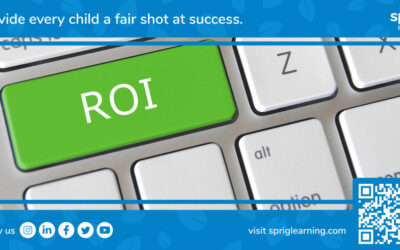
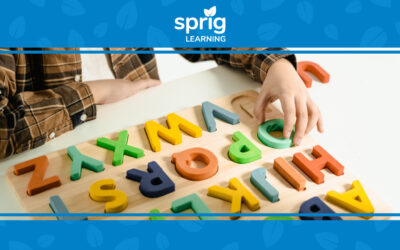
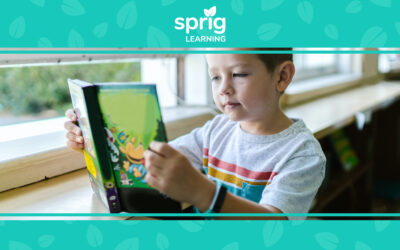
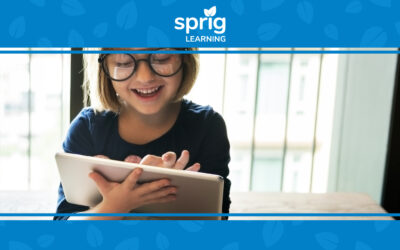
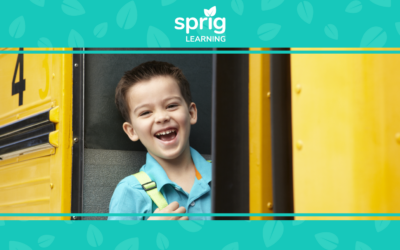
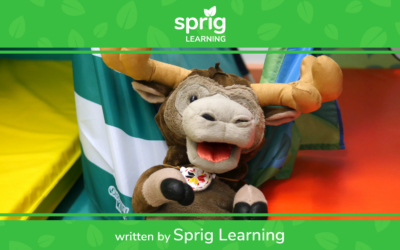
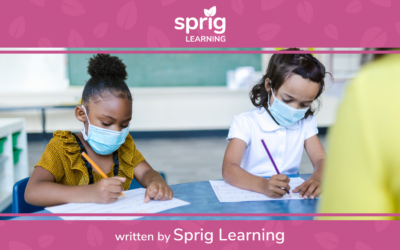
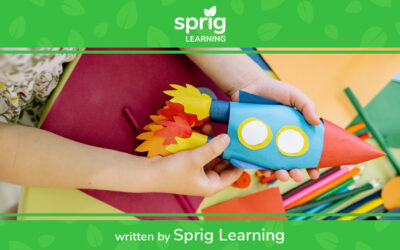
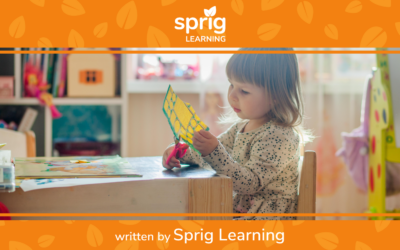
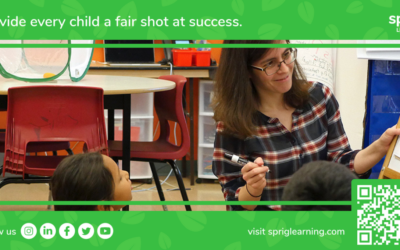
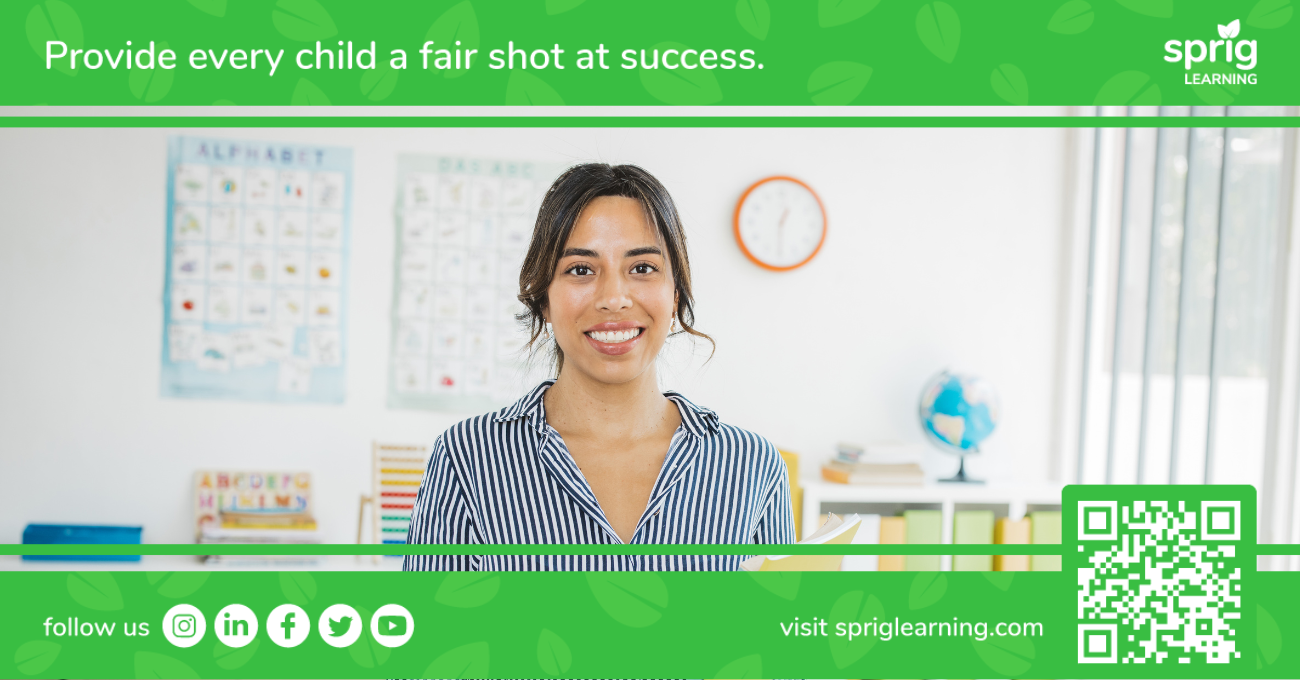
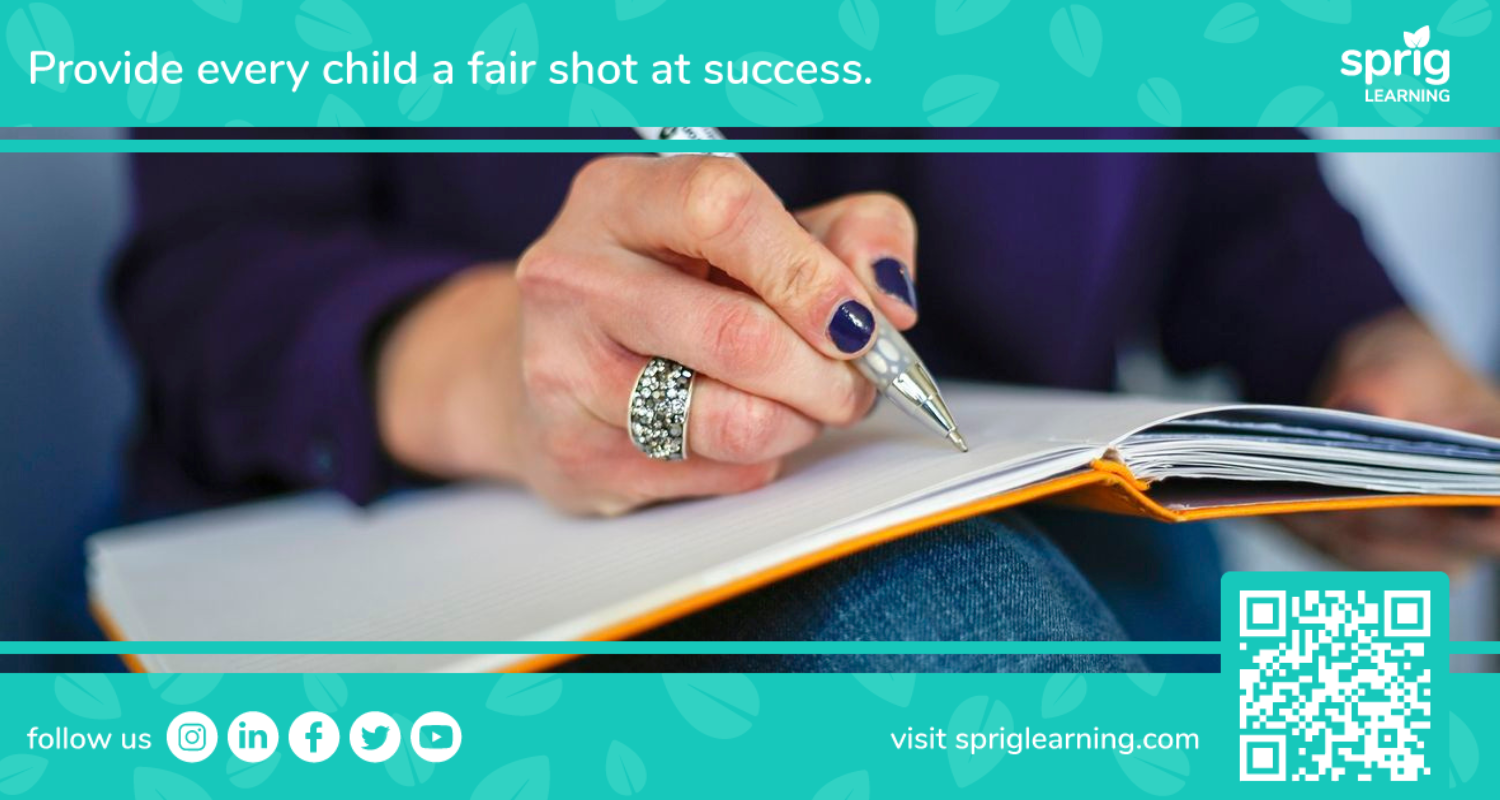
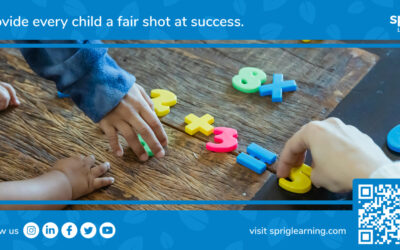
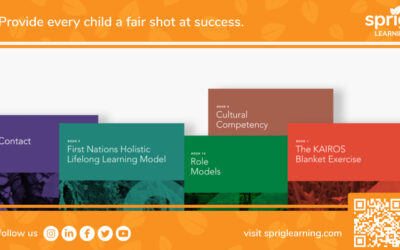
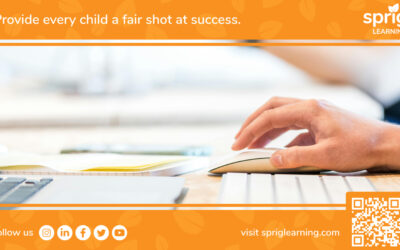
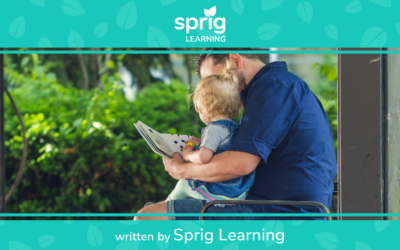
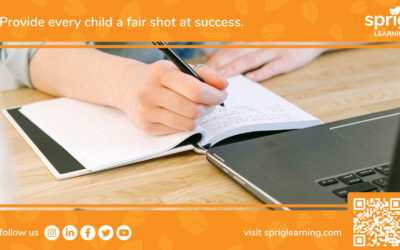
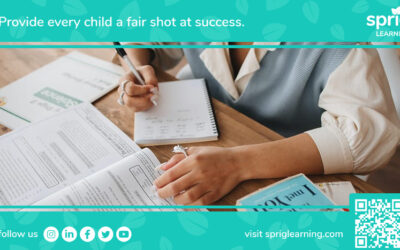
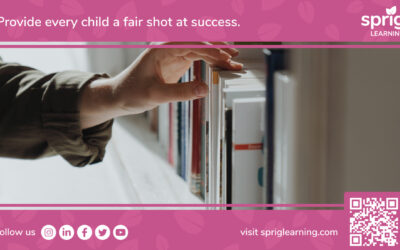
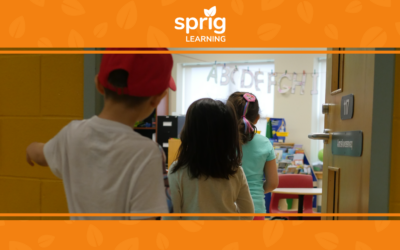
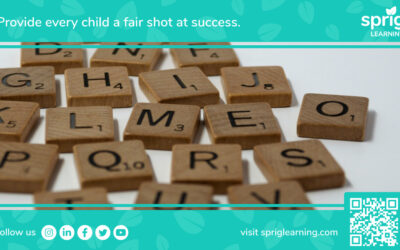
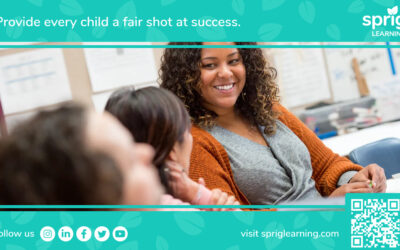
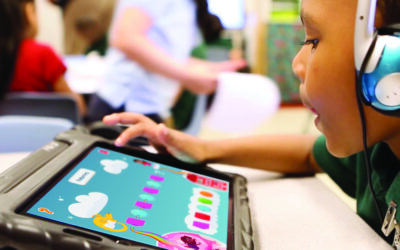
![Evidence-based Early Literacy in the United States [Covers All 50 States. Updated for 2023]](https://www.spriglearning.com/wp-content/uploads/2022/09/Evidence-based-Early-Literacy-in-the-United-States-400x250.jpg)
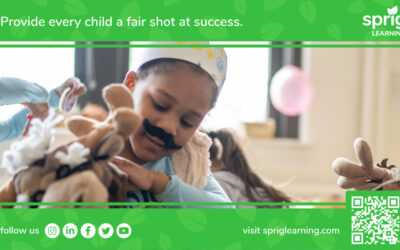
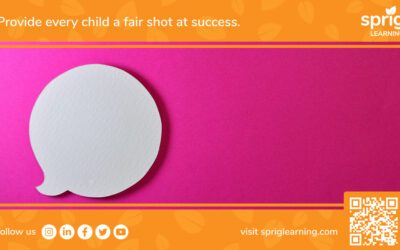
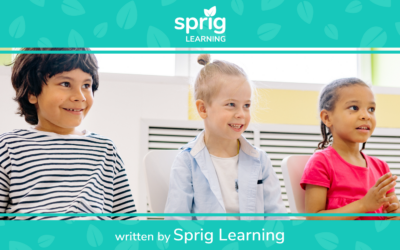
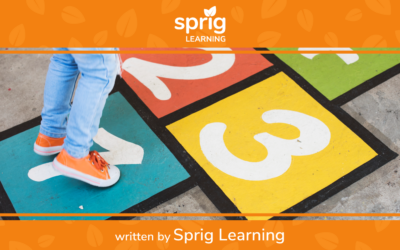
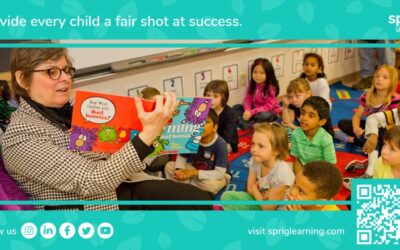
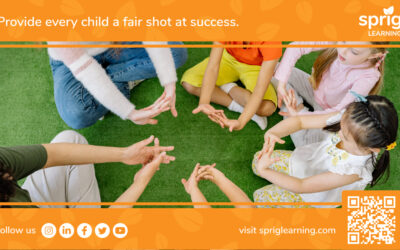
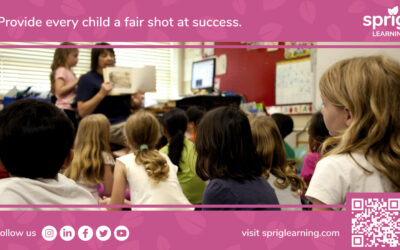
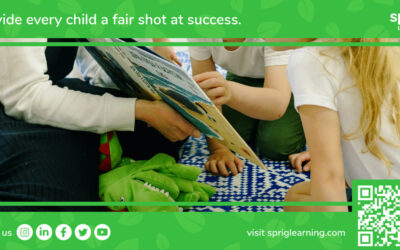
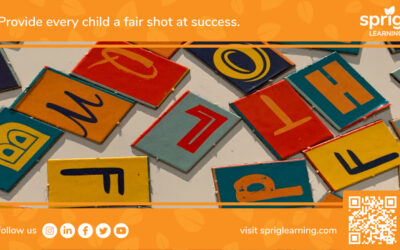
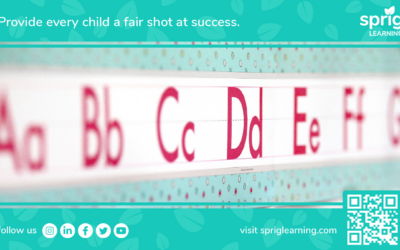
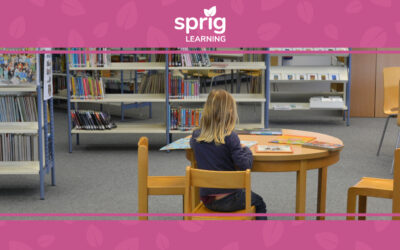
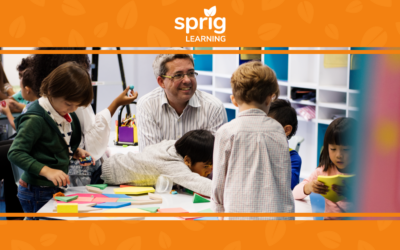
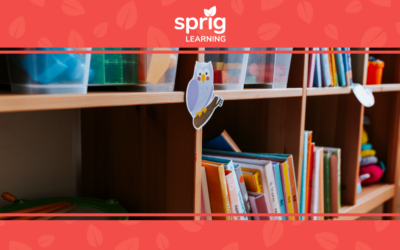
![High-Performing School Improvement Plan [With 3 Actual Cases from Early Learning]](https://www.spriglearning.com/wp-content/uploads/2022/02/2402-SchoolImprovementPlanBlog-Website-400x250.png)
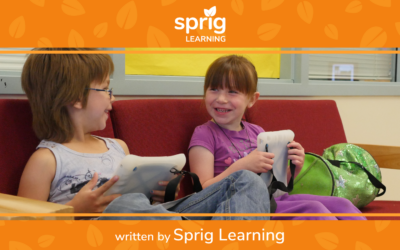
![Sprig Learning Yearly Review [Includes message from CEO]](https://www.spriglearning.com/wp-content/uploads/2021/12/1221-YearlyReviewBlog-Website-1-400x250.png)
